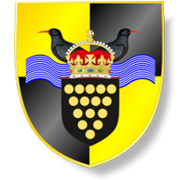Using the Radio
The whole art of using the radio is to be clear and precise when talking, keep the tone of your voice level and talk slowly, pronounce your words clearly. and use the correct pro-words in your transmission such as “OUT” at the end of your transmission to state that the call is finished, and not “Over and Out” as you might hear in a movie which is really saying to different things “Over” means I’ve finished and waiting for your reply whilst “Out” means this call is finished or ended.
When calling another station say their call sign three times and repeat your call sign three times, example on channel 16:-
Good Fortune, Good Fortune, Good Fortune – Early Dawn, Early Dawn, Early Dawn -Suggest channel 10 Over.
Answer: Early Dawn this is Good Fortune switching to channel 10.
Both station should now allow time for switching channels then Early Dawn makes the first call on channel 10.
Good Fortune this is Early Dawn on Channel 10 Over
Answer: Early Dawn, Good Fortune, pass your message Over…
When giving numeric information such as your position; which for example is 50 12′ .4N – 001 35′ .6w this should be said as:- five zero degrees one two decimal four minutes North, zero zero one degrees three five decimal six minutes West.
When giving your position related to a mark it should be a well defined chart object. The bearing should be in the 360 degree notation from true north (remember to use your deviation card if using your compass) and that of the position from the mark. “My position is three two zero degrees from Gull rock Portreath five decimal two miles”
Distances should be give in nautical miles and cables (tenths of a mile) and Speed given in knots and use the twenty-four hour clock UTC.
Procedure Words (Prowords)
Prowords are designed for easy international understanding and brevity. The Standard Maritime Communications Phrases (SMCP) is published by the IMO http://www.imo.org
Shown below are the words that SRC candidates are required to know:-
THIS IS – from the station who’s name or call sigh immediately follows.
OVER – the invitation to reply
OUT – this is said by the station at the end of working, this call is finished.
REQUEST RADIO CHECK – self explanatory.
I SAY AGAIN – I am repeating what I have just said.
STATION CALLING – used when you are unsure of the identity of the station calling you.
READ BACK – request to read back the information just given.
WRONG – reply to a message that has just been read back but has errors.
CORRECT – reply to a message that has just been read back for check.
CORRECTION – spoken when a mistake has been made the correct words are about to follow.
RECEIVED – your message has been received and understood.
WAIT – spoken when the station is unable to accept traffic immediately it will reply Wait minutes.
I SPELL – I am going to spell these words or group of words.
ALL AFTER – used after the proword “I SAY AGAIN” to request the repetition of a message.
ALL BEFORE – used after the proword “I SAY AGAIN” to request the repetition of a message.
REPEAT – used when a part of a message is important and it needs emphases.
Crib Sheets
It is the correct procedure to have crib sheets by your radio so that if you the operator are incapacitated in anyway someone else on-board can make the appropriate MAYDAY or PAN PAN call; These crib sheets will have all the information on them for someone to give the required information over the radio; It is best practice to train someone under your supervision to use the radio correctly; Blank Crib Sheets are available from the MCA or RYA. These sheets follow the correct format of a MAYDAY or PAN PAN call with prompts and provide space for you to fill in your details etc. You can download a copy of the MCA MAYDAY Crib Sheet in .pdf format by clicking Here
All radio regulations and Secrecy or Correspondence regulations are available from the MCA or Ofcom
